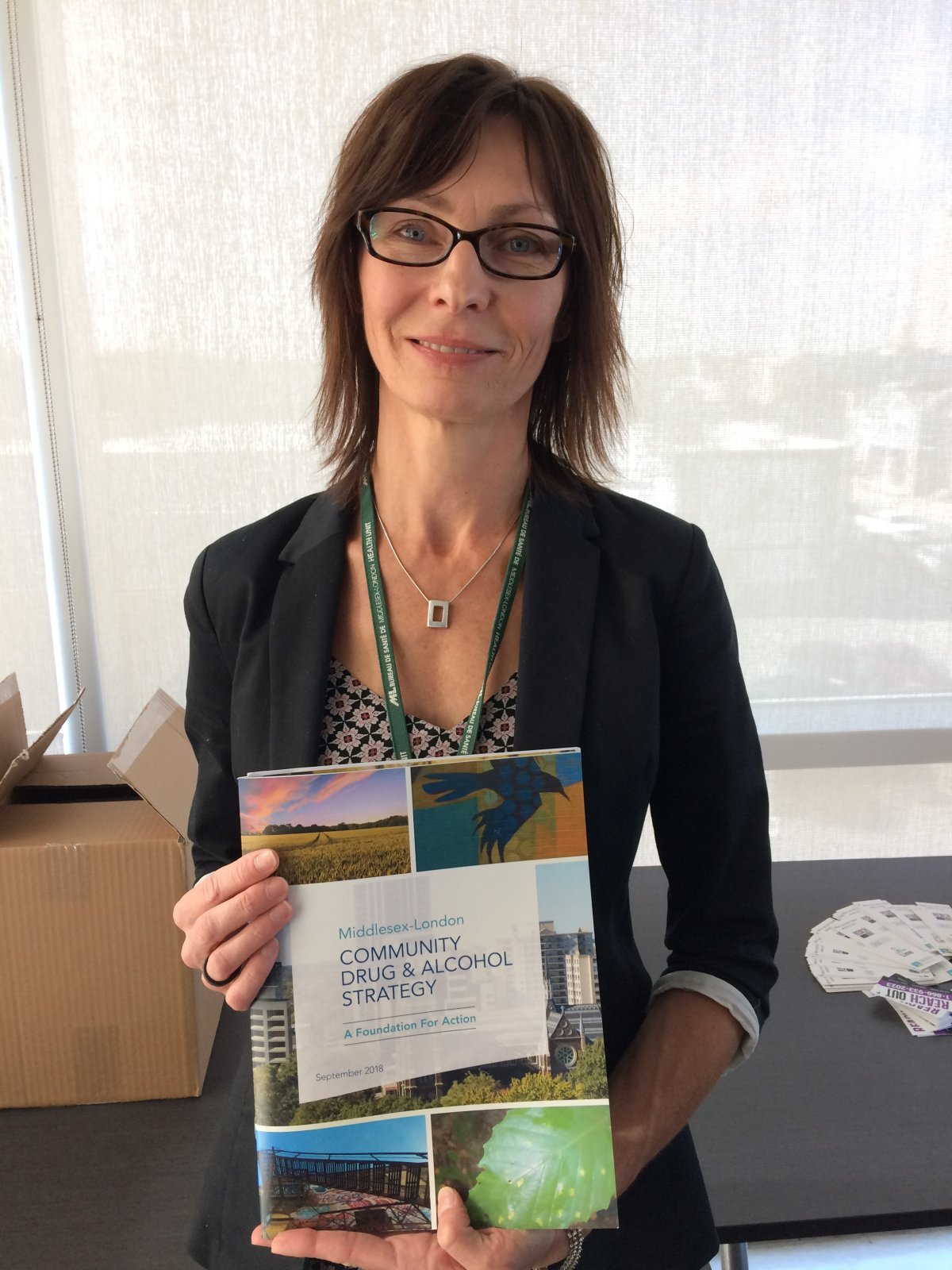Community and health care leaders gathered Tuesday morning at Goodwill Industries on Horton Street to release a report that’s been over two years in the making.

Officials with the Middlesex-London Health Unit distributed The Middlesex-London Community Drug & Alcohol Strategy (CDAS): A Foundation For Action, which contains 23 recommendations and 98 associated actions to address substance abuse-related issues across the region.
Fifty-nine of those have been prioritized for action over the next three years, but the CDAS steering committee co-chair Rhonda Brittan admits there is no dollar figure associated with implementing the actions just yet.
“We were able to develop the strategy itself without any dedicated funding, which was excellent because it really is based on that strong collaboration,” she said. “As we move to implementation, is there a need for funding? Absolutely.”
Officials with the CDAS steering committee said that between 2016 and 2017, 30 people died of opioid overdoses in the London area. During the first quarter of this year, 20 people have died.
London’s overdose prevention site has reversed 40 overdoses since it opened in February.
Recommendations include reducing system barriers and creating greater access to treatment and recovery services, as well as expanding harm reduction services.
Tracy Law with the London Area Network of Substance Users is optimistic that the recommendations and actions will become a reality.

Get daily National news
“I’m hopeful, but some of the things will take funding and that’s where kind of the question kind of goes up in the air, like even the safe injection site is in danger of losing its funding,” Law said.
Brittan said the challenges associated with the use of drugs and alcohol can, and often do, have devastating negative effects on health, relationships, safety and overall community wellness.
“No one sat down in their Grade 5 class, when they had to fill out that little form about what you want to be when you grow up, no one wrote down, ‘I want to be an addict, I want to be addicted to substances,’ so for me, and for much of the talk that happened around the steering committee table, stigma is at the root and that’s a place where we can all play a role,” she said.
WATCH: In part one of an Ontario-wide series on the opioid epidemic, Global News traveled to London to look at the problem there.
-ONLINE_848x480_1313697859919.jpg?w=1040&quality=70&strip=all)
Brittan said Thursday’s unveiling marks the official shift from developing the strategy to implementation of the recommendations and actions.
“What’s going to be happening over the next few weeks is we will be reconvening a smaller governance group, getting the drug strategy coordinator in place, we are then going to be moving to develop the implementation plan,” she said. “So when you look at some of the 59 actions, we don’t have exact timelines connected to them right now. There are ones that we will be able to work very steadfastly for and get done very quickly, there are others that are just about starting them because they are forever actions.”
Work on the strategy began in the spring of 2016 and involved more than 50 agencies, organizations and individuals representing social and health services, law enforcement, those with lived experience, businesses, and Indigenous communities. Over 500 people from the community were consulted during the process.
- ‘Alarming trend’ of more international students claiming asylum: minister
- TD Bank moves to seize home of Russian-Canadian jailed for smuggling tech to Kremlin
- Why B.C. election could serve as a ‘trial run’ for next federal campaign
- After controversial directive, Quebec now says anglophones have right to English health services
The report is built using a “four pillars” approach that focuses on prevention, treatment, harm reduction and enforcement.
Joe Antone, of the Oneida Nation of the Thames, sat on the steering committee. He tells 980 CFPL he’s excited the strategy includes a focus on educating service providers about Indigenous determinants of health.
“If we don’t know what the problem is, how can we come up with a solution?” he said. “So it’s really about educating service providers and the public about specific Indigenous issues that impact substance issue that might not be on their radar.”












Comments